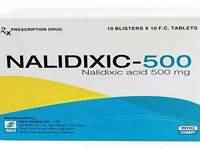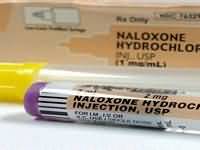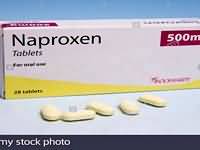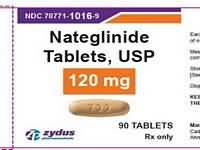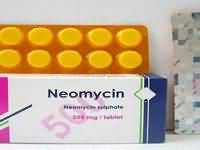ritonavir
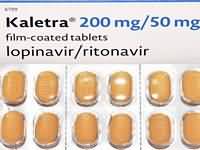
CLINICAL USE
Protease inhibitor:Treatment of HIV-1 infection in combination other antiretrovirals
DOSE IN NORMAL RENAL FUNCTION
600 mg twice dailyAs low dose booster with other protease inhibitors: 100–200 mg once or twice daily
PHARMACOKINETICS
Molecular weight :720.9 %Protein binding :98–99 %Excreted unchanged in urine : 3.5 Volume of distribution (L/kg) :0.4half-life – normal/ESRD (hrs) :3–5/Unchanged DOSE IN RENAL IMPAIRMENT
GFR (mL/MIN)
20 to 50 : Dose as in normal renal function 10 to 20 : Dose as in normal renal function <10 : Dose as in normal renal function DOSE IN PATIENTS UNDERGOING RENAL REPLACEMENT THERAPIES
CAPD :Not dialysed. Dose as in normal renal function HD :Not dialysed. Dose as in normal renal function HDF/high flux :Not dialysed. Dose as in normal renal function CAV/VVHD :Unlikely to be dialysed. Dose as in normal renal function IMPORTANT DRUG INTERACTIONS
Potentially hazardous interactions with other drugsAlfuzosin: avoid concomitant use Analgesics: opioid and NSAID levels may be increased (risk of toxicity) – avoid dextropropoxyphene and piroxicam; methadone and pethidine levels reduced; increased fentanyl and toxic pethidine metabolite concentration – avoid with pethidineAnti-arrhythmics: increased concentration of amiodarone, flecainide and propafenone (increased risk of ventricular arrhythmias) – avoid concomitant use; possible increased risk of arrhythmias with disopyramide and mexiletineAntibacterials: rifabutin concentration increased (risk of uveitis) – avoid; concentration of clarithromycin and other macrolides increased – reduce dose of clarithromycin in renal impairment; concentration of both drugs may be increased in combination with fusidic acid; avoid with telithromycin in renal and hepatic failureAnticoagulants: anticoagulant effect of coumarins and phenindione possibly increased; effect of warfarin may be enhanced or reducedAntidepressants: SSRIs and tricyclic concentrations possibly increased; concentration reduced by St John’s wort; possibly reduced paroxetine concentration; increased side effects with trazodoneAnti-epileptics: carbamazepine and phenytoin concentration may be increased; concentration reduced by phenytoin Antifungals: in combination with itraconazole or ketoconazole concentration of both drugs may be increased; concentration increased by fluconazole; voriconazole concentration reduced – avoidAntimalarials: avoid concomitant use with artemether/lumefantrineAntipsychotics: concentration of pimozide, sertindole, clozapine and possibly other antipsychotics may be increased (risk of toxicity) – avoid concomitant use; possibly inhibits metabolism of aripiprazole – reduce aripiprazole dose; olanzapine concentration reducedAntivirals: levels of both nelfinavir and ritonavir may be increased if used in combination; amprenavir, indinavir and saquinavir levels increased; increased risk of toxicity with efavirenz – monitor LFTs
Anxiolytics and hypnotics: levels of many of them increased (risk of extreme sedation and respiratory depression) – avoid alprazolam, diazepam, flurazepam, midazolam, zolpidem; concentration of buspirone increasedBupropion: bupropion levels increased (risk of toxicity) – avoid Calcium-channel blockers: levels of blockers possibly increased – avoid with lercanidipine.Ciclosporin: levels possibly increased by ritonavir
Cilostazol: concentration of cilostazol possibly increased – avoid concomitant use
Corticosteroids: possibly increased corticosteroid concentration; increased concentration of inhaled/intranasal budesonide and fluticasone Diuretics: eplerenone concentration increased – avoid concomitant use Ergot alkaloids: risk of ergotism – avoid Ivabradine: ivabradine concentration possibly increased – avoid concomitant useLipid-lowering drugs: increased risk of myopathy with simvastatin – avoid; possibly increased risk of myopathy with atorvastatin
Oestrogens and progestogens: metabolism accelerated (contraceptive effect reduced)5HT 1 agonists: concentration of eletriptan increased – avoidSildenafil: concentrations of sildenafil significantly increased – avoid
Theophylline: metabolism accelerated, theophylline levels reduced Tacrolimus: levels possibly increased by ritonavir Vardenafil: possibly increased vardenafil concentration – avoid concomitant use ADMINISTRATION
Reconstition
– Route
Oral Rate of Administration
–Comments
– OTHER INFORMATION
Administer with food .
See how to identify renal failure stages according to GFR calculation
See how to diagnose irreversible renal disease
Home

